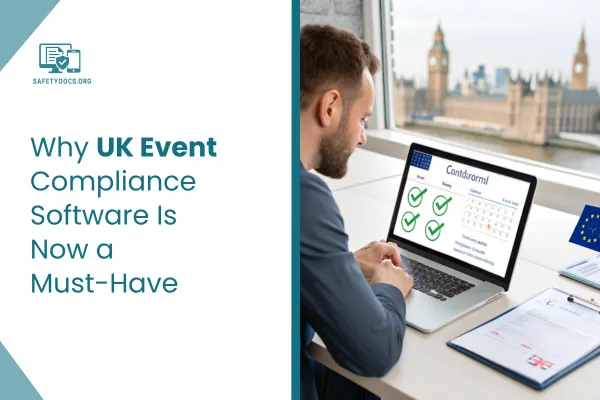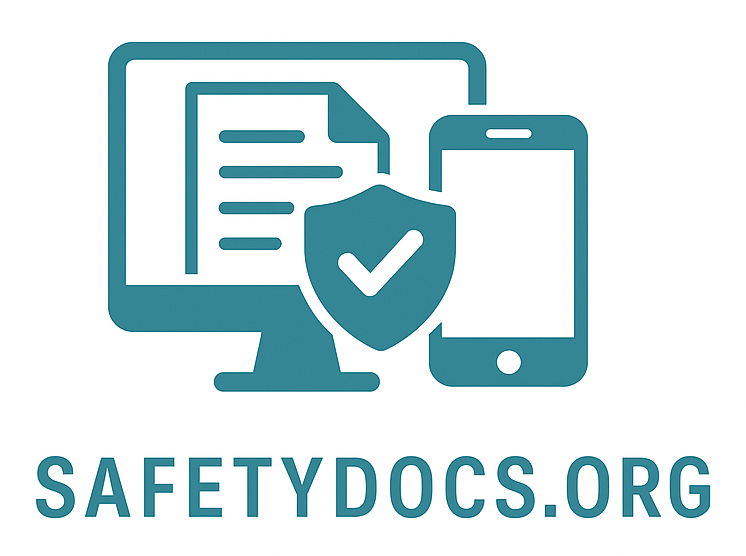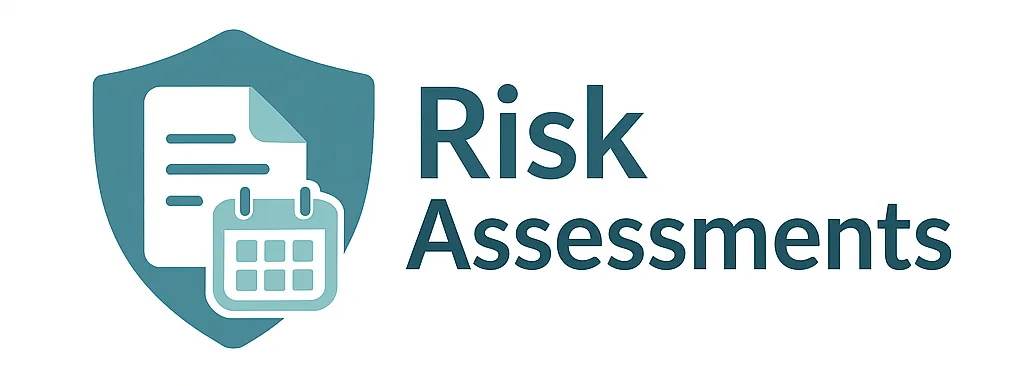
UK Event Compliance Software for Safer Events
Why UK Event Compliance Software Is Now a Must-Have
Managing live events has become increasingly complex in the UK. Organisers are not only expected to create engaging and well-executed experiences but also to meet a growing list of legal and regulatory requirements. From health and safety regulations to data protection and environmental considerations, the pressure to stay compliant is higher than ever. That’s where UK event compliance software steps in, offering a reliable way to manage tasks, track obligations, and reduce the risk of legal penalties or operational failures.
More than just a digital checklist, this type of software provides a framework that keeps event teams aligned and on schedule. With the help of smart tools and centralised systems, organisers can plan, execute, and document compliance-related actions with greater accuracy and less stress. As the demand for safety, transparency, and accountability grows, these platforms are proving to be essential for the future of UK events.
The Rising Need for Automated Compliance
In recent years, several high-profile event incidents have led to increased oversight from UK authorities. Councils and licensing bodies now demand clear documentation of safety measures, emergency procedures, and accessibility plans. This shift has made manual tracking methods—like spreadsheets, paper checklists, and emails—less reliable and more prone to oversight.
UK event compliance software automates many of these processes. It helps event professionals ensure they meet all requirements before, during, and after an event. Everything from contractor certifications to emergency evacuation plans can be uploaded, tracked, and updated in real time. This minimises the chances of missing critical details and reduces the likelihood of last-minute complications.
Health and Safety at the Forefront
Safety remains the most scrutinised area in event compliance. Whether it’s a food fair, a music festival, or a conference, the expectation is clear: organisers must create a safe environment for everyone involved.
UK law requires organisers to perform comprehensive risk assessments and ensure that hazards are identified and managed. These include fire risks, crowd control, access points, and first aid coverage.
UK event compliance software simplifies these tasks by offering standardised templates and automated reminders. Risk logs can be created for specific event zones, and responsibilities can be assigned to individual team members with clear deadlines. If an issue arises, it can be logged instantly, along with evidence of how it was resolved.
GDPR: Protecting Attendee Information
Events often involve the collection of personal data, such as names, email addresses, and even payment information. Under GDPR, this data must be handled carefully, with full transparency and appropriate consent.
Compliance tools can be configured to enforce GDPR protocols. This might include secure storage of data, encryption, and tracking user consent. Organisers can also use the software to set data retention policies, automate deletion schedules, and ensure that only authorised users can access sensitive information.
Without such systems, even small slip-ups in data handling could result in legal action or damage to reputation.
Environmental and Sustainability Reporting
More UK councils are requiring environmental compliance as part of event planning. This includes how waste is managed, how much carbon is emitted, and how vendors contribute to sustainability goals.
UK event compliance software can include built-in tools for tracking sustainability metrics. For example, organisers can log recycling data, vendor sustainability certifications, or eco-friendly transport plans.
With growing public awareness of climate issues, showing environmental responsibility can also improve an event’s image and appeal to both attendees and sponsors.
Accessibility Requirements
Inclusivity is no longer optional. Events in the UK must comply with regulations that ensure equal access for all attendees, including those with disabilities. This can involve wheelchair access, accessible toilets, visual signage, and even support for neurodiverse individuals.
Software systems help map out these requirements in advance and confirm that each standard has been met. If changes are made on-site, such as a stage relocation or altered entry route, updates can be reflected in the system in real time.
Not only does this protect organisers from discrimination claims, but it also makes the event more welcoming to a wider audience.
Real-Time Visibility for Teams and Inspectors
Having a centralised system is key when multiple departments and contractors are involved. From security firms to catering services, everyone needs access to the same compliance requirements and documents.
UK event compliance software allows real-time collaboration. Each team can log updates, flag issues, and upload photos or files directly into the system. This reduces miscommunication and ensures that the latest information is always at hand.
Additionally, inspectors or local authorities can be granted limited access to view compliance records, streamlining the approval process and avoiding delays.
Audit-Ready Documentation
One of the biggest advantages of using digital compliance tools is the ability to generate detailed, timestamped records. Should a review or investigation occur, you have everything you need—digitally archived and organised.
This includes:
Staff training certificates
Insurance policies
Fire risk assessments
Crowd management plans
Vendor safety protocols
Incident logs
Having all these records in one secure platform improves response time and shows that the organiser has taken their responsibilities seriously.
Supporting Small and Mid-Sized Events
While large festivals and corporate expos often have dedicated compliance teams, smaller events may not. In these cases, software becomes a vital support system. It reduces the need for legal expertise and guides organisers through required steps using prompts, templates, and automated checks.
This levels the playing field, allowing even local community events or new event planners to meet professional standards without stretching their resources.
Key Features Organisers Should Look For
Not all platforms offer the same functionality, so selecting the right UK event compliance software is important. The most useful tools typically offer:
Pre-built compliance templates based on event type and UK regulations
Automated reminders for inspections, deadlines, and reporting
Mobile accessibility for live updates on event dayPermission controls to manage access based on roles
Data encryption for privacy compliance
Choosing a platform that integrates well with other planning or ticketing tools can also streamline operations even further.
Avoiding Costly Mistakes
Mistakes in compliance can be incredibly expensive. From cancelled events to injury claims, the consequences extend beyond legal penalties. They can damage your brand, harm attendees, and reduce the likelihood of future approvals.
For example, missing a deadline for submitting your noise control plan could mean losing your event licence. Failing to provide an accessibility route might trigger formal complaints. These are avoidable with proper planning, and software ensures nothing slips through the cracks.
Confidence for Stakeholders
When your event is fully compliant and you have the documentation to prove it, you build confidence among stakeholders. Venues are more likely to host you, suppliers are more willing to partner, and sponsors see you as low risk.
In many cases, clients and corporate partners also ask for evidence of compliance before finalising agreements. Having everything in place—clean, organised, and professionally managed—sets you apart from competitors.
Public Perception and Reputation
Beyond official stakeholders, the general public also values safety, fairness, and transparency. Attendees today expect events to be well-managed and respectful of their privacy, wellbeing, and comfort.
When your event runs smoothly without incident, it becomes part of your reputation. Attendees leave positive reviews, return in the future, and recommend you to others.
On the other hand, one safety issue, accessibility complaint, or data breach can create negative headlines and long-term damage.
FAQs
1. What kind of events require compliance tools?
All events, from local fairs to large festivals, benefit from tools that support safety and legal planning.
2. Can small event planners use these platforms effectively?
Yes, many systems are designed to guide organisers step-by-step, regardless of event size or budget.
3. How do these tools help with safety regulations?
They offer templates, task lists, and reminders to ensure all health and safety measures are followed.
4. Are data privacy features included in these systems?
Most platforms include GDPR support like data consent tracking, secure storage, and user access control.
5. Do local councils accept digital compliance records?
Yes, many authorities prefer digital documentation because it's easier to verify and update in real time.
Conclusion
The events industry is evolving fast, and regulations are only expected to tighten. Investing in compliance software is no longer about convenience—it’s about survival and growth.
Organisers who stay ahead of the curve will not only avoid penalties but will build stronger, more resilient operations. Whether you’re planning a one-off corporate event or running a yearly music festival, being compliant means being ready, credible, and professional.
In a competitive market where trust is everything, UK event compliance software offers the clarity, structure, and confidence every organiser needs.

